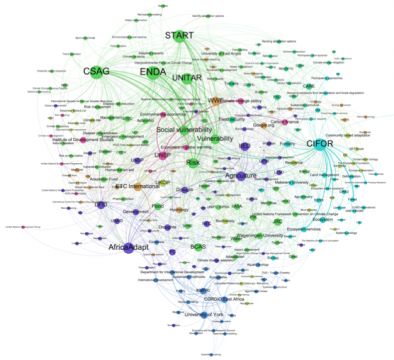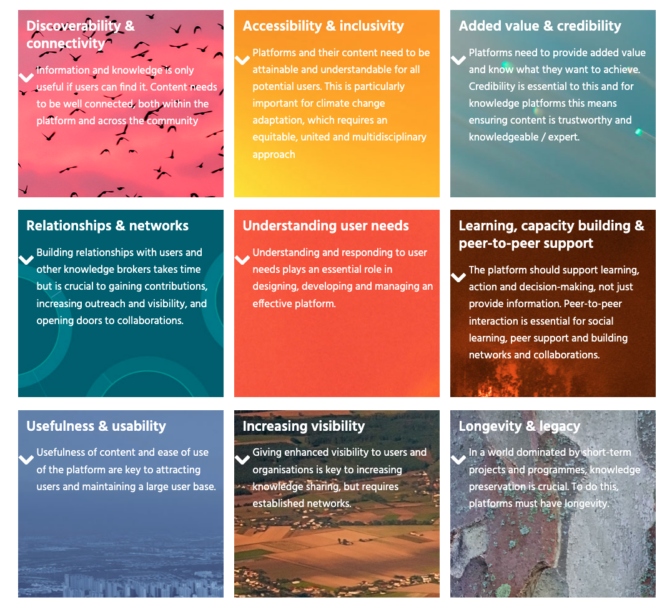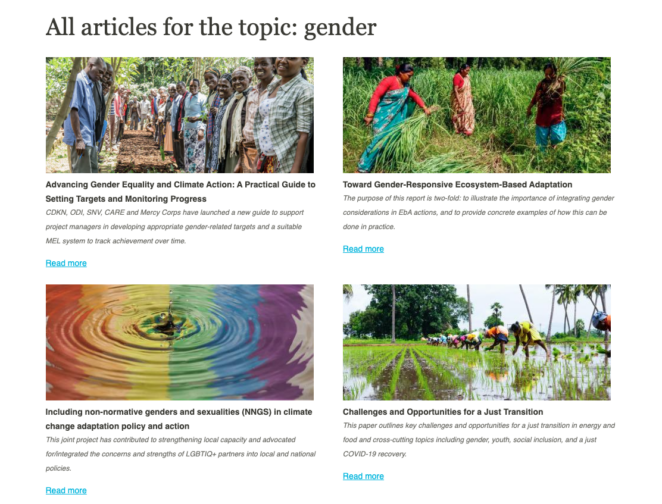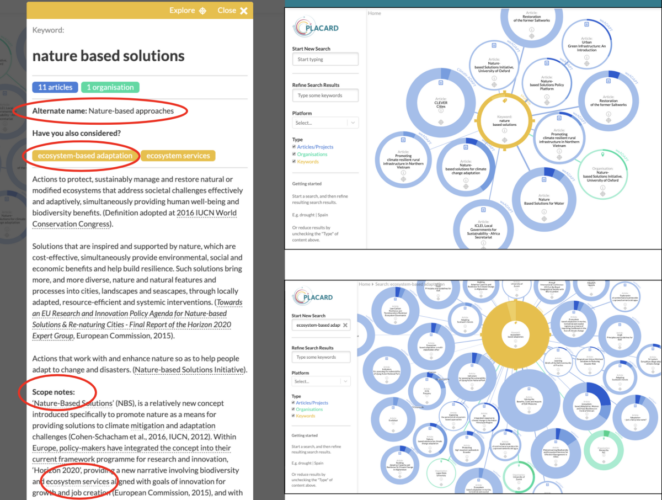How is weADAPT advancing research on knowledge management?

The weADAPT team has learned a lot about online knowledge management since 2007, when weADAPT was first launched. We continue to advance knowledge management through research at our host institution, SEI. As well as ‘learning by doing’ we have benefitted hugely from our involvement with the Climate Knowledge Brokers group and other knowledge platforms globally e.g. through the KE4CAP project.
You can find some of this learning in a blog for the PLACARD project on “Good practice for online knowledge sharing” and in our brief “Learning across locales, organisations, and networks: The weADAPT experience”.

One of the major lessons we have learned is that, in addition to sharing knowledge in ways that are accessible and easy to understand for large, diverse audiences, it is essential that knowledge is easy to find and discover.
Our new work now focuses on this – both within the platform and on trying to transform knowledge management for climate action more generally.
Find out more below!
Linking content through tagging
weADAPT uses keyword tagging technology to link related content together and make it easy to explore and discover content.
This keyword tagging is based on a vocabulary of user-contributed keywords (the weADAPT vocabulary), the Open Calais service, and the Climate Tagger developed by REEEP. Find out more about the Climate Tagger in the webinar, “PoolParty for Sustainable Development: The Climate Tagger“.
This webinar explains and demonstrates how the PoolParty Semantic Suite (on which Climate Tagger is based) can be used for information- and data management solutions in the field of sustainable development. weADAPT is presented towards the end of the seminar as a showcase example of how these technologies can be used.
These services allow us to automatically suggest tags for weADAPT content as well as add them manually based on the subject matter of the content and our experience. These tags are used to connect related content and give users other ways to explore the issue they are interested in. These tags also feed into our site search functionality.
You can see these keyword tags in the right-hand column of each article, case study and theme or network page.
Clicking on one of these tags returns all of the content tagged with that keyword, enabling you to quickly find a wealth of related content.

Taxonomies for Linked Data
We are developing taxonomies to improve the quality, accuracy and usefulness of our keyword tagging in weADAPT, and to enable other platforms to make the best use of this technology.
The PLACARD taxonomies for climate change adaptation and disaster risk reduction are available for other websites to use and will drive all keyword tagging in the next version of weADAPT, due to be launched in 2021-2022 (update to Drupal 9). We continue to expand these taxonomies and integrate them with other existing taxonomies and ontologies. Read more about these taxonomies and how they are being developed.
Using a shared, well-described taxonomy to annotate content on websites is a key step for realising Linked Data. Much in the same way clicking on a keyword in weADAPT returns all content tagged with the keyword, if all websites used the same taxonomy this keyword tagging functionality could be used to return content from across multiple websites. You can read more about taxonomies here.
This is the concept behind the Connectivity Hub, which was developed by members of the weADAPT team for the PLACARD project, which uses keyword tagging to connect currently siloed and fragmented knowledge from across different platforms and communities in an engaging and efficient way that also supports learning and collaboration.
These keywords can also serve as the basis of a climate ‘glossary’ to promote a shared understanding of how (definitions) and why (scope notes) terminology is used in different ways in the climate change space. The keyword tags also support the discovery of ‘related content’.

A climate action knowledge graph
Keyword tagging and shared taxonomies are just the tip of the iceberg in terms of what is now possible in knowledge management. Knowledge Graphs offer exceptionally powerful ways of connecting and querying content. The weADAPT team are currently exploring ways of leveraging knowledge graphs for climate action with partners REEEP and Semantic Web Company.
You can read more about how we are thinking about online knowledge management in our paper “Transforming knowledge management for climate action: A road map for accelerated discovery and learning”. You can read our concept note/positioning paper for this work.
(0) Comments
There is no content